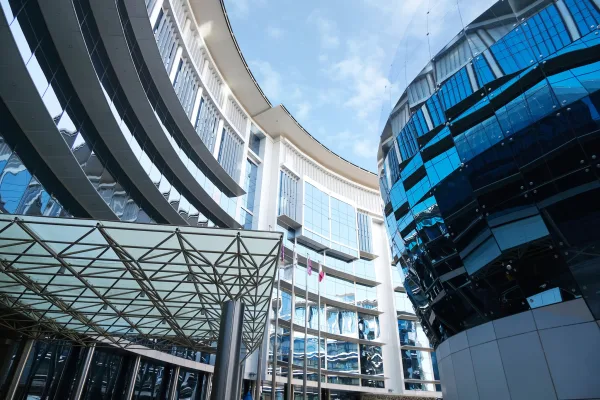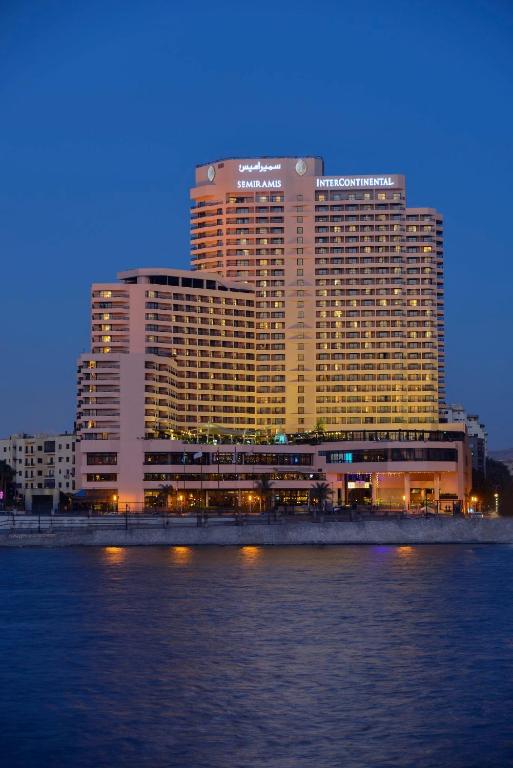For both foreigners and natives, renting or purchasing a home in Saudi Arabia, commonly referred to as the Kingdom of Saudi Arabia, is intimidating. With a diverse range of properties available, it can take time to determine whether renting or buying is the right option for you. In this article, we will provide an overview of the real estate market in Saudi Arabia to help you make an informed decision.
Saudi Arabia’s rapidly growing population and economy have propelled the country’s real estate sector to tremendous development in recent years. The government has also implemented several initiatives to encourage investment in the sector, including introducing new property ownership laws that permit non-Saudi nationals to own more real estate types. As a result, there are now more options than ever for those looking to buy or rent a property in KSA.
There are several factors to consider when renting or buying a house in Saudi Arabia. These include your budget, the location of the property, and your long-term plans. Renting a property can be suitable for those unsure about their long-term plans or who need more financial resources to buy a property outright. On the other hand, buying a property can be a sound investment for those who plan to stay in Saudi Arabia for an extended period and have the financial means to do so.

Understanding the Saudi Arabian Real Estate Market
Market Overview
The Saudi Arabian real estate market has seen significant growth in recent years, with the sector expected to continue growing in the coming years. Numerous reasons, such as population growth, urbanization, and economic expansion, are driving the industry. Saudi Arabia’s real estate market is heavily controlled, and purchasing and disposing of property is subject to stringent restrictions.
Key Locations
The key locations in the Saudi Arabian real estate market include Riyadh, Jeddah, Mecca, Medina, Dammam, Al Khobar, and the Red Sea. These locations are popular among Saudi and foreign investors due to their strong economies, growing populations, and attractive investment opportunities.
Property Types
Several properties are available in the Saudi Arabian real estate market, including apartments, residential villas, townhouses, and compound properties. Gated premises are also popular, providing added security and privacy for homeowners.
Foreign Ownership Laws
Foreigners can buy property in Saudi Arabia but must adhere to strict foreign ownership laws. According to these rules, foreigners who wish to purchase real estate in Saudi Arabia must first receive permission from the General Investment Authority of Saudi Arabia and the Ministry of Interior. Furthermore, there are select places, such as those close to borders or the holy cities of Mecca and Medina, where outsiders are prohibited from owning land.
Market Trends and Projects
The Saudi Arabian real estate market is subject to volatile geopolitical conditions, which can impact the market’s growth. Despite this, the market will continue growing due to several ongoing and upcoming projects, including the construction of new cities, renewable energy projects, and the development of the tourism sector.
In conclusion, the Saudi Arabian real estate market provides attractive investment opportunities for Saudi and foreign investors. While the market is subject to strict regulations and volatile geopolitical conditions, ongoing and upcoming projects will continue driving growth in the sector.
The Buying Process in KSA
Finding Properties
When looking to buy a property in KSA, the first step is to search for available properties. This can be done through real estate agents, property finders, or online searches. Considering the property’s location, size, and price is essential before deciding.
Legal and Financial Considerations
Once a property has been selected, the buyer must obtain approval from the seller. Getting help from a lawyer to assist with the legal aspects of the transaction, such as the title search, articles of association, power of attorney, and certified check, is recommended. The buyer must also ensure that they have the necessary income and down payment to secure a mortgage and any other fees associated with the purchase.
Securing a Mortgage
To secure a mortgage in KSA, the buyer must have a monthly salary that meets the bank’s requirements. The bank will typically loan up to 90% of the total price of the property purchase, repayable throughout 5 to 25 years. Prior to making a decision, it is crucial to evaluate mortgage conditions and rates offered by several institutions.
Finalizing the Purchase
Once the mortgage has been secured, the buyer and seller must meet at the first notary public department to transfer the title. The buyer must provide proof of payment and any necessary documentation, such as a power of attorney or articles of association. The transfer of title will be completed once all the required procedures have been followed.

Renting Property in KSA
Renting a property in KSA can be a good option for those not ready to buy a house. This section provides insights into the rental market in KSA, rental agreements and terms, finding rental properties, and moving in and setting up.
Rental Market Insights
The rental market in KSA is competitive, especially in major cities like Riyadh and Jeddah. Expats should be prepared to pay a security deposit, typically one or two months’ rent. The location, size, and kind of property all affect the rental cost. A one-bedroom apartment in Riyadh typically costs about 2,500 SAR per month, while a three-bedroom apartment would run you about 6,000 SAR, according to Numbeo. In Jeddah, the average monthly rent for a one-bedroom apartment is around 2,800 SAR, while a three-bedroom apartment will cost around 7,000 SAR.
Rental Agreements and Terms
Tenants must sign a rental agreement in the Kingdom of Saudi Arabia that specifies the terms and conditions of their lease. The rental agreement has to be entered into the Ejar system electronically. Information on the length of the lease, the rental fee, the payment schedule, and any unique terms and conditions should all be included in the agreement. Before signing, the agreement must be thoroughly reviewed.
Finding Rental Properties
To find rental properties in KSA, expats can search online using websites like Property Finder SA and Bayut KSA. They can also look for rental properties through local real estate agents. Researching the neighborhood and amenities before committing to a rental property is essential.
Moving In and Setting Up
When moving into a rental property in KSA, renters should ensure all utilities are set up and in working order. This includes electricity, water, and gas. Renters should also ensure that any necessary repairs are made before moving in. If the apartment is furnished, renters should inspect the furniture and appliances to ensure they are in good condition. If the apartment is unfurnished, renters must purchase their furniture and appliances.
Overall, renting a property in KSA can be a good option for those still deciding to buy a house. By following the rental market insights, rental agreements and terms, finding rental properties, and moving in and setting up guidelines, renters can ensure a smooth and hassle-free experience.

Living in KSA as an Expatriate
Moving to Saudi Arabia as an expatriate can be an exciting and challenging experience. The country has strict dress codes and cultural norms that may take some time to adjust. However, expats can find a welcoming and diverse community in KSA with patience and an open mind.
Cultural Adaptation
Expats should be educated on the cultural norms and customs in Saudi Arabia. The country is predominantly Muslim, and Islamic law governs many aspects of daily life. Dress codes are strictly enforced, and women must wear an abaya publicly. Alcohol is prohibited, and public displays of affection are not allowed.
Residential Compounds and Communities
Many expats choose to live in residential compounds or gated communities. These premises offer a range of amenities, including swimming pools, gyms, and restaurants. They also provide a sense of security and community for expats living in KSA.
Neighboring Countries and Travel
Saudi Arabia is in the heart of the Middle East and is bordered by several neighboring countries, including Qatar, Bahrain, the United Arab Emirates, Oman, Jordan, Iraq, and Kuwait. Expats can take advantage of KSA’s strategic location and explore the region’s diverse cultures and landscapes. However, restrictions may apply, and expats should always check with local authorities before traveling to neighboring countries.
In conclusion, living in KSA as an expatriate can be a unique and rewarding experience. Expats should take the time to understand the cultural norms and customs in Saudi Arabia and be open to new experiences. Residential compounds and communities offer a sense of security and community for expats, and KSA’s strategic location provides opportunities for travel and exploration.
Saudi MLS
In the dynamic realm of real estate, Saudi MLS serves as the indispensable guide, steering professionals through the complexities of emerging brokerages, fostering essential connections with potential clients, and broadening their professional horizons. Within this vast arena of opportunities, Saudi MLS emerges as the cornerstone of success. Embark on a journey through its diverse services and pave your way to triumph.

Frequently Asked Questions
What are the requirements for expats to rent or purchase a house in Saudi Arabia?
Expats wishing to rent or purchase a house in Saudi Arabia must have a valid residency permit (Iqama) and work visa. Additionally, they must provide proof of income and a letter of no objection from their employer. To purchase a property, expats must have a Saudi bank account and pay the total purchase price upfront.
How does the cost of renting a house in Riyadh compare to other cities in Saudi Arabia?
The cost of renting a house in Riyadh is generally higher than in other cities in Saudi Arabia. For example, a 2-3 bedroom flat in Riyadh will cost between SR 2,000 and SR 12,000 per month, while it will cost more in Jeddah. Renting a furnished apartment in Riyadh ranges between SR 25,000 and SR 40,000.
What are the legal implications for a foreigner buying property in Saudi Arabia?
Foreigners can buy property in Saudi Arabia but are subject to certain restrictions. For example, they may only purchase residential properties and must obtain approval from the Saudi Arabian General Investment Authority (SAGIA). Additionally, they must pay a 30% deposit upfront and the total purchase price within 90 days.
What types of properties are available for rent in Diriyah, Riyadh?
Diriyah, Riyadh, offers a variety of properties for rent, including apartments, villas, and townhouses. Many of these properties are in gated communities and have amenities like swimming pools, gyms, and 24-hour security.
Are there differences in the home-buying process in Saudi Arabia compared to other countries?
Yes, there are several differences in the home-buying process in Saudi Arabia compared to other countries. For example, in Saudi Arabia, the buyer must pay the total purchase price upfront and obtain approval from SAGIA. Additionally, the buyer must pay a 30% deposit upfront, and the seller is responsible for paying the real estate agent’s commission.
What are the average monthly rental costs for apartments in Riyadh?
In Riyadh, the average monthly rental price of an apartment for two to three bedrooms is between SR 2,000 and SR 12,000 per month. However, the cost might change based on the property’s size, features, and location.












